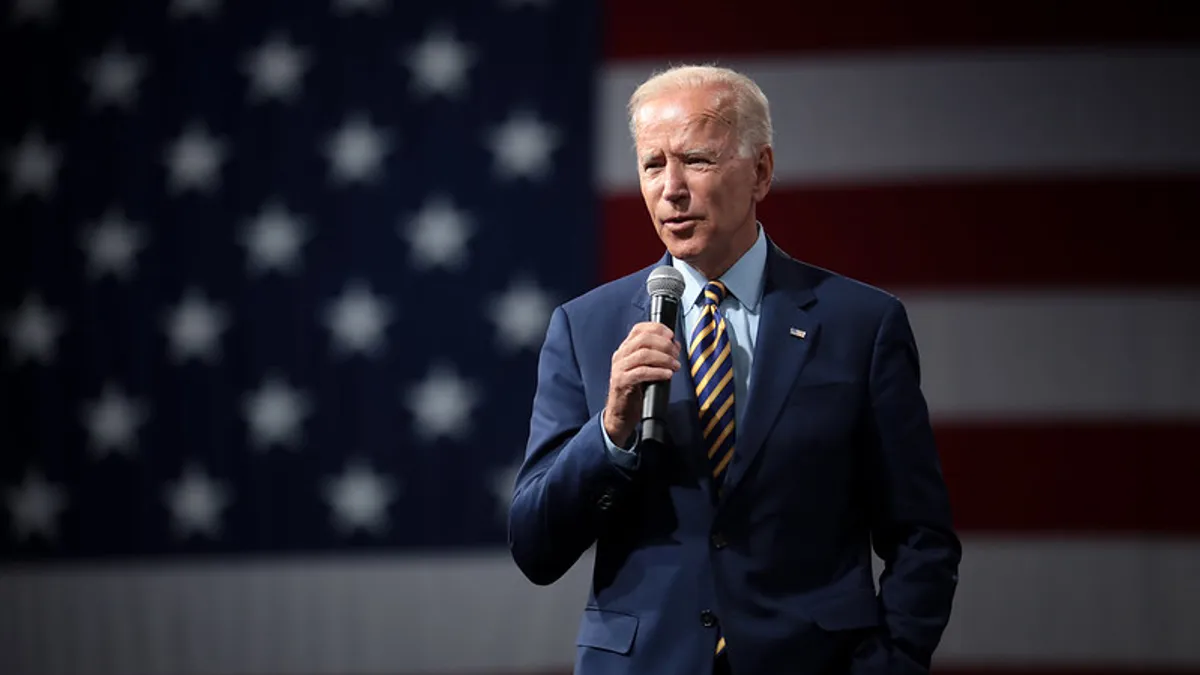During the last year of campaigning, former Vice President Joe Biden prioritized investing in R&D and nationalizing data privacy on his tech and cyber platforms.
The industry may soon get to see this plan in action, barring legal challenges posed by President Donald Trump. Biden is the president-elect with 290 electoral college votes secured, according to the Associated Press.
Looking ahead, tech leaders can expect the next four years to be filled with more tech sector regulations — and innovation.
Investing in tech, innovation and cross-sector collaboration
Business technology and cyber leaders can expect to see more federal investments in emerging tech and public-private R&D partnerships from the Biden administration.
On the 2020 campaign trail, Biden touted an "innovate in America" platform promising $300 billion in R&D investments for "breakthrough technologies" such as 5G, AI, and lightweight materials. By partnering with the private sector, the Biden administration wants to expand manufacturing innovation.
Biden plans to use existing tools like the Small Business Innovation Research program to funnel government capital into private sector commercialization of R&D efforts led by research institutions.
Through these investments and partnerships, the Biden administration aims to create more high-quality jobs in the field, according to the platform.
Biden said in a June townhall — and reiterated in his 2020 platform — his administration would work to streamline H1-B visa processes to bring in a highly skilled workforce from other countries, including in the tech and cyber field.
The new administration also plans to invest in tech and cyber career pathways for women, workers of color, and other under-represented communities. The Department of Labor would sponsor the investment in digital, statistical and technological skill training platforms.
Motivation for the tech and cyber investments also stems from an interest in competing with China. China uses state subsidies to innovate and build its tech leadership, and America should also use government resources to accelerate R&D and compete, according to Biden's 2020 platform.
Bolstering cybersecurity and data privacy
Biden built his cyber stance on improving the security of critical infrastructure and implementing nationalized standards for data protection.
"We will work with other countries — and the private sector — to protect individuals' data and defend critical infrastructure, including the global financial system," according to Biden's platform.
Biden's campaign for bolstering cybersecurity focused on infrastructure such as the electric grid and generally maintaining American capabilities to deter cyberthreats.
On the campaign trail, Biden largely shied away from discussing the details of how his administration would respond to cyberthreats. That said, the campaign did clarify it will work strategically to deter cyberattacks and impose substantial costs on state-based actors interfering with election security.
President Trump avoided national standards for data privacy throughout his administration, and Biden's focus on federal data law shifts away from that approach. The Democratic platform included an intention to add national standards for data protection to the Obama administration's Consumer Privacy Bill of Rights.
Data privacy laws are currently a patchwork system across the U.S. with each state deciding for itself how to handle a breach. Under Biden, data privacy leaders can expect a more standardized system.
Online tech regulations
Big tech can expect more regulations from the Biden administration, reeling in corporate power.
While Biden called for breaking up big corporations such as tech companies, the "last resort" if regulators determine businesses are using their power to undermine competition, Biden leans more heavily toward enforceable regulations against big tech compared to Trump's era of mandates.
The Biden administration is also likely to reform Section 230 guidelines, although it's not yet clear what that could look like.
The online tech law protects websites from liability for user posts and grants sites authority to remove objectionable content. Biden and the Democratic party have said they plan to get rid of certain Section 230 protections in the coming years.











